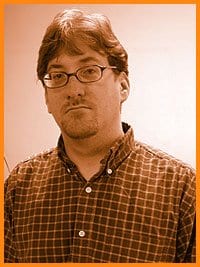This may be the end of the AIDS Committee of Ottawa (ACO) as we know it.
The AIDS service organization is considering making radical changes that may include the end of any direct services or a merger with Bruce House.
“I think the changes will be substantial and aimed at striking a new direction,” said board chair Gareth Park at a Feb 21 community forum on ACO’s future, “but I think some aspects of ACO – if it continues – would be familiar to people now.”
But the proposed changes have some community activists worried about what it may mean for AIDS prevention programs for gay men in Ottawa.
Longtime community activist Barry Deeprose, one of the founders of ACO, says gay men remain at risk.
“The gay community remains the largest single group affected,” he says.
“At least there is some clarity,” says Deeprose. “My conclusion is that ACO has withdrawn formally from prevention activity for gay men – and gay men remain the largest single group at risk for contracting AIDS.”
In September project funding from Health Canada for male and female prevention programs offered by ACO, in partnership with Pink Triangle Services, was cancelled. None of the proposed changes deal with prevention.
Park says a number of people have raised similar concerns about prevention.
“The consultation raised some real concerns about separating prevention out from direct service, and that’s something that we certainly will be thinking about as a committee,” he says.
“Prevention is critical,” says Park. “There is a shortage of prevention activity going on now and we need to start establishing programs and services that target prevention particularly, at this point, to gay men.”
ACO’s strategic planning process began in January, 2003. The forum was the final consultation stage.
ACO has presented four strategic options:
Serving the growing community of women living with or affected by HIV/AIDS;
Stepping away from providing direct services;
Focusing on case-management for people living with HIV/AIDS; or
“Harmonized case-management” involving a merger with Bruce House.
This month, the ACO board will summarize the consultations, review its vision and mission statement – and face the decision-making.
“I suspect that there will be a range of meetings in April around seeing the document, responding to the document and figuring out how to implement it,” says Park.
When ACO’s strategic plan is complete, Deeprose expects to see two questions answered: “What specifically will be the reduced role of ACO and what will it be accountable for?”
Park admits that the answers to those questions may not please everybody.
“The real fundamental question for strategic planning is how to come up with something that will make things better -that’s the real challenge – and the very real prospect that whatever gets decided will make some people unhappy,” says Park.

 Why you can trust Xtra
Why you can trust Xtra


